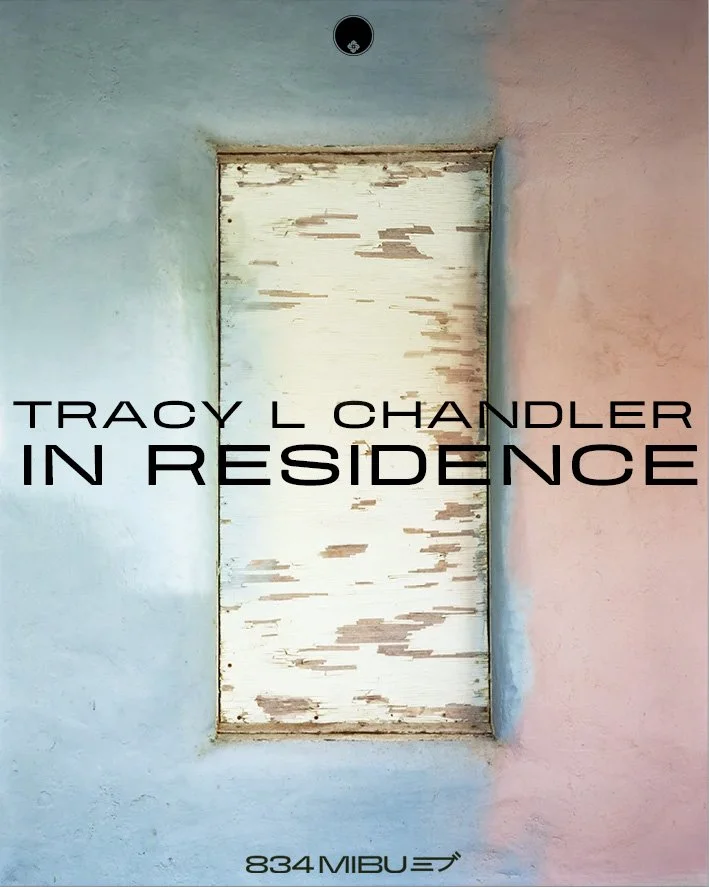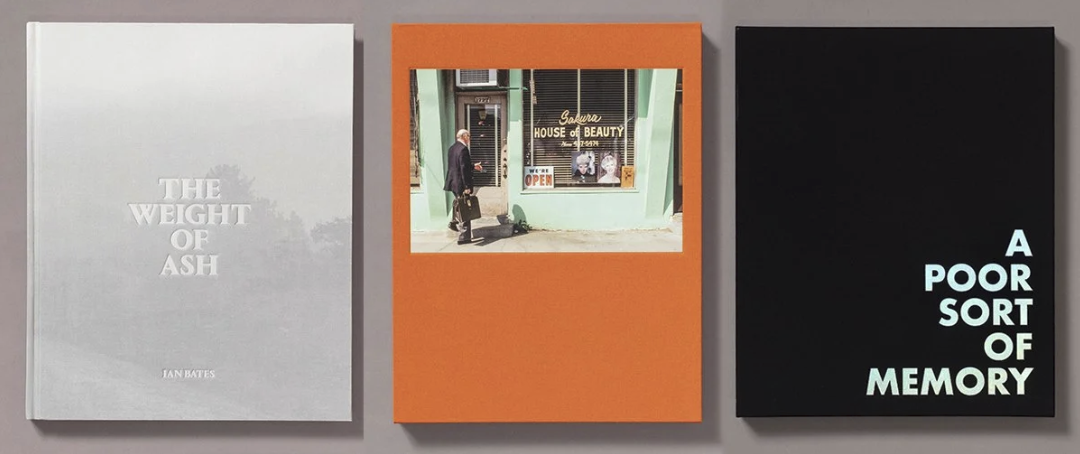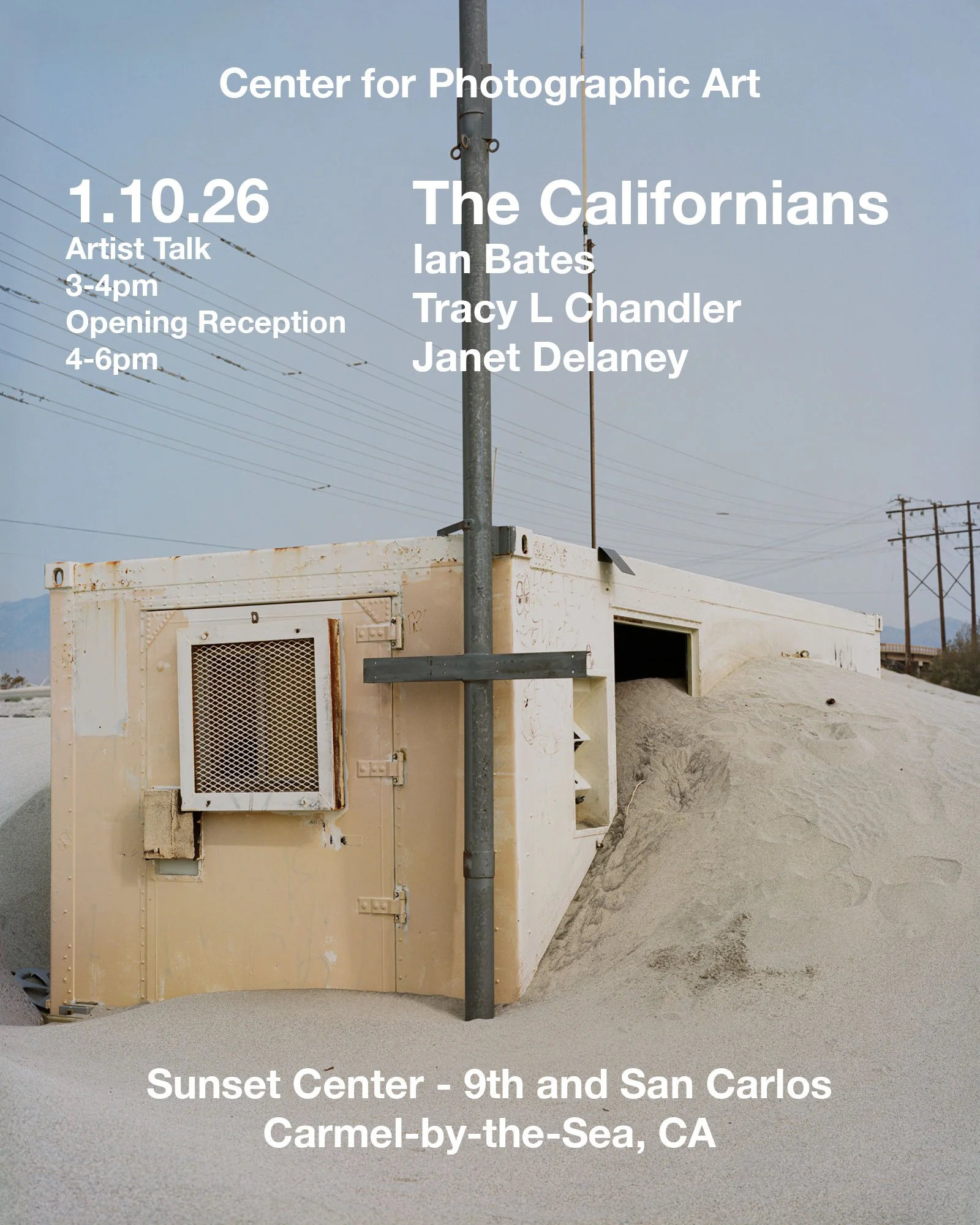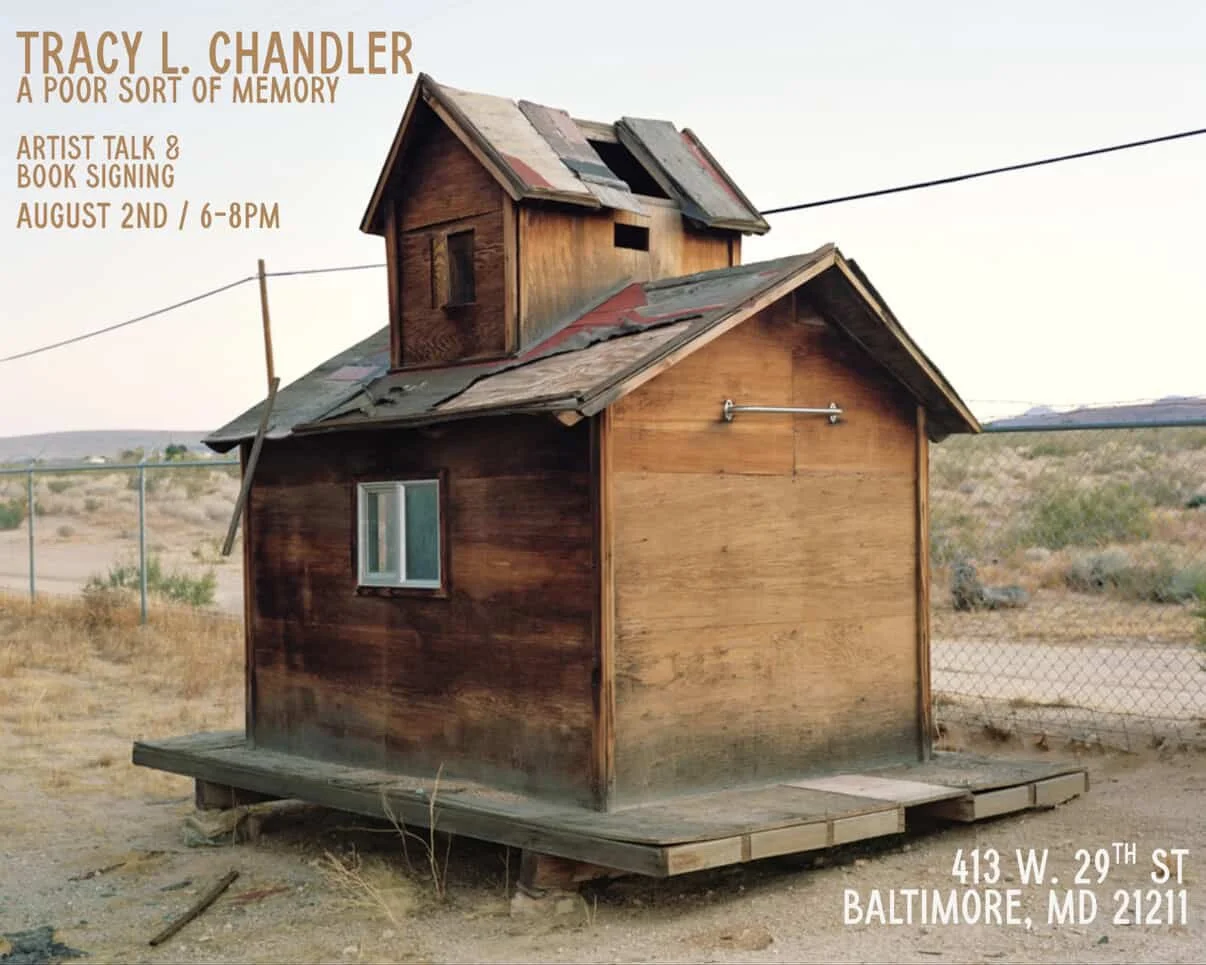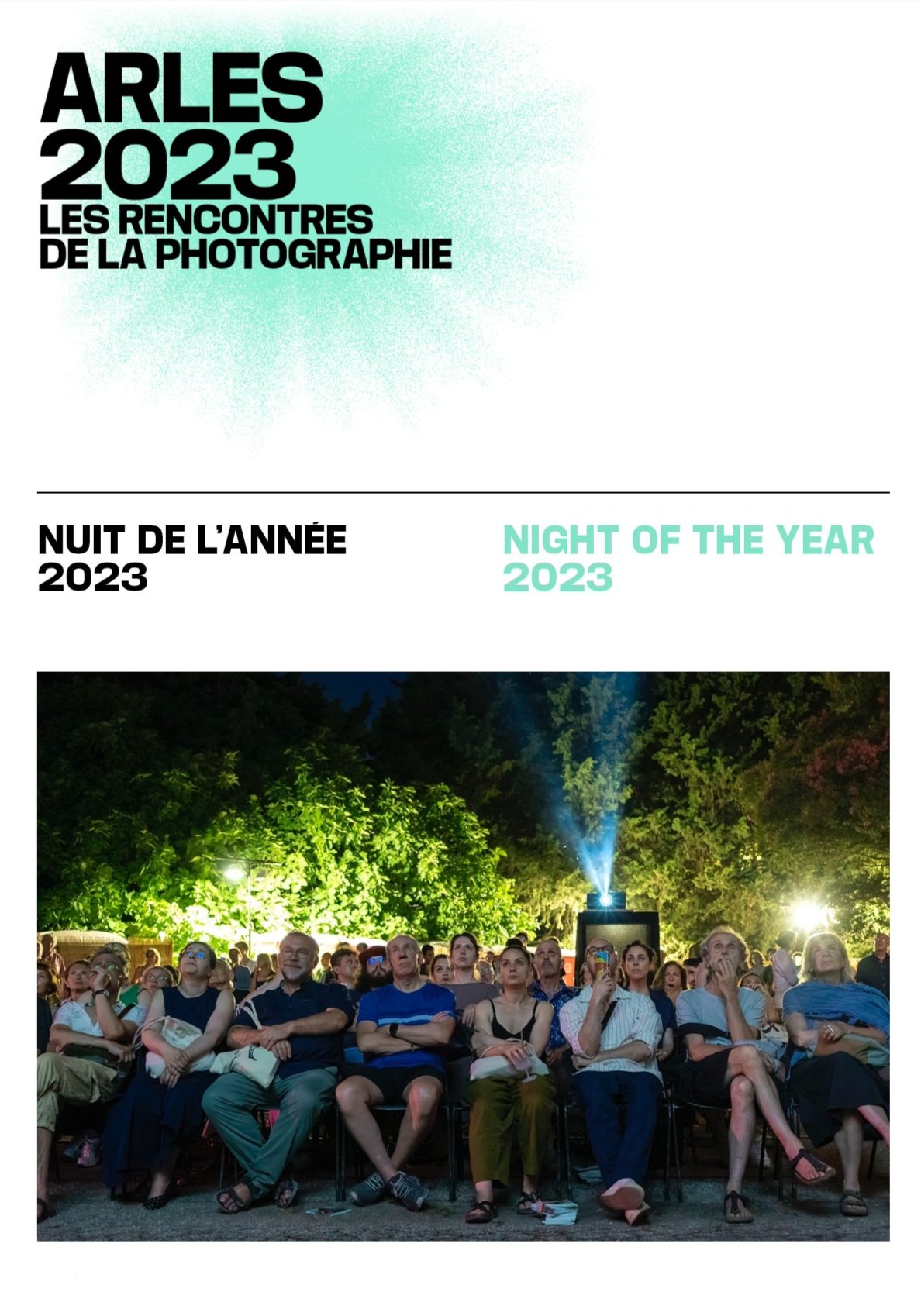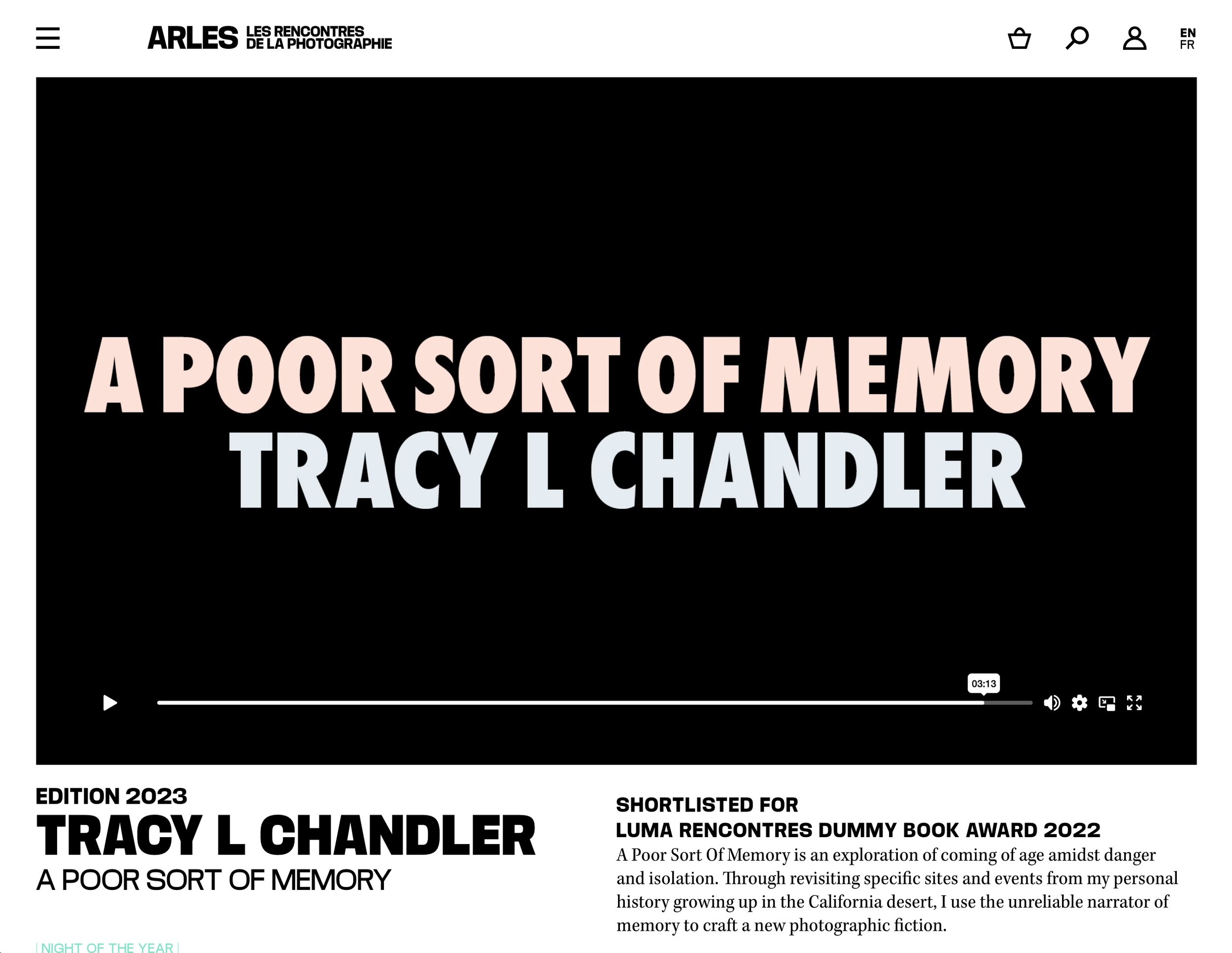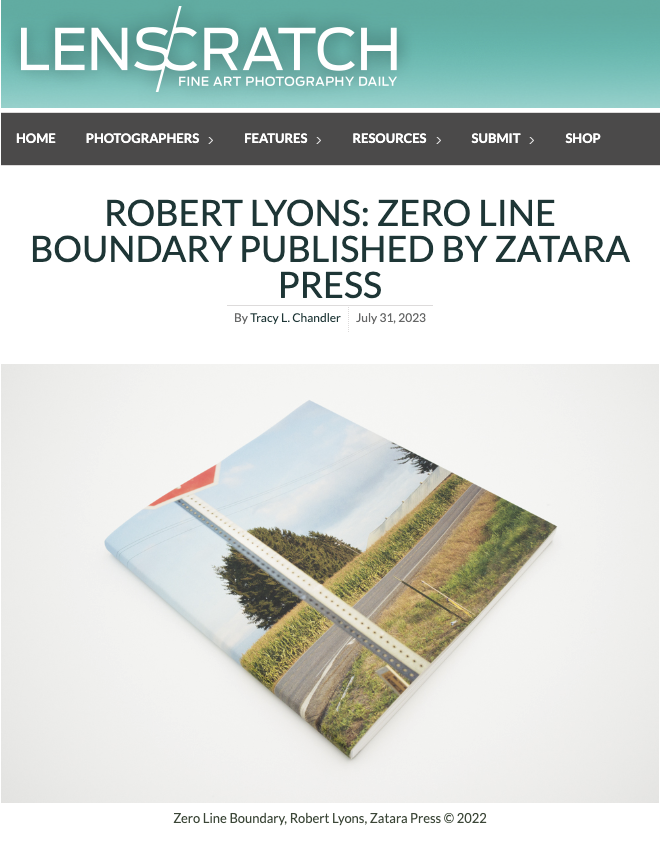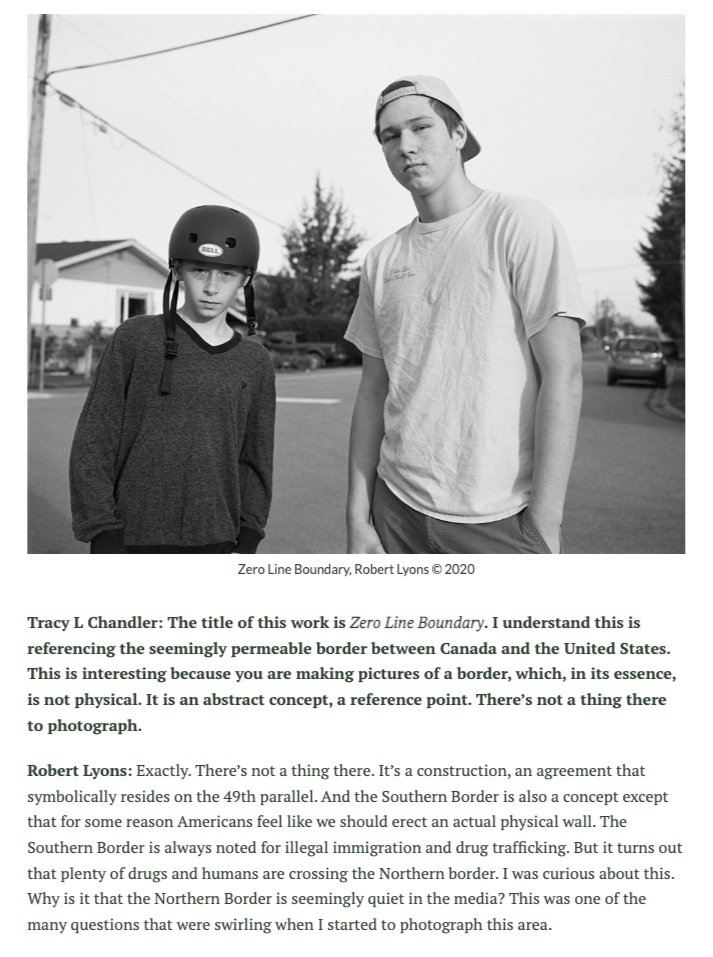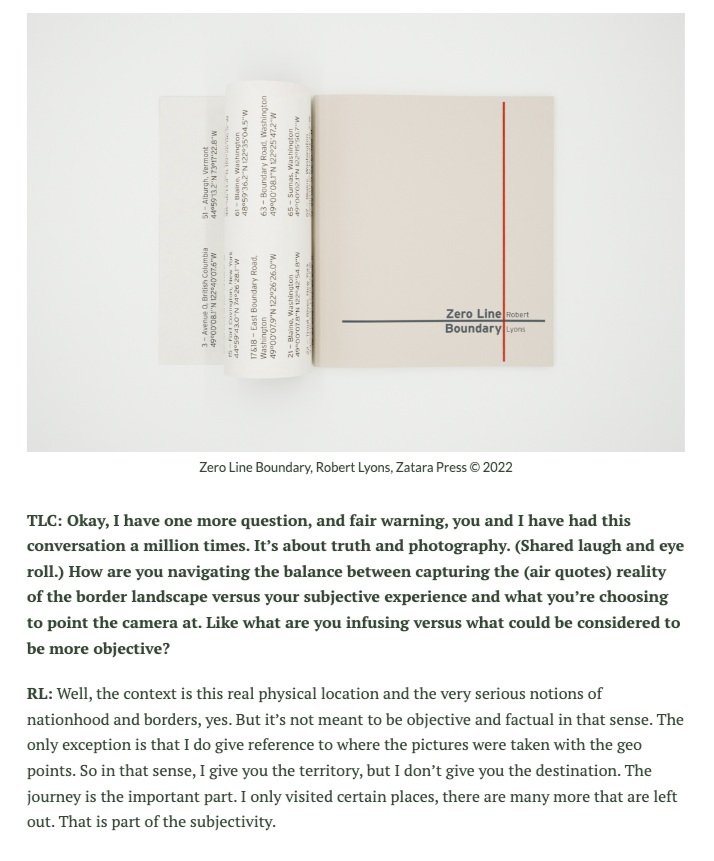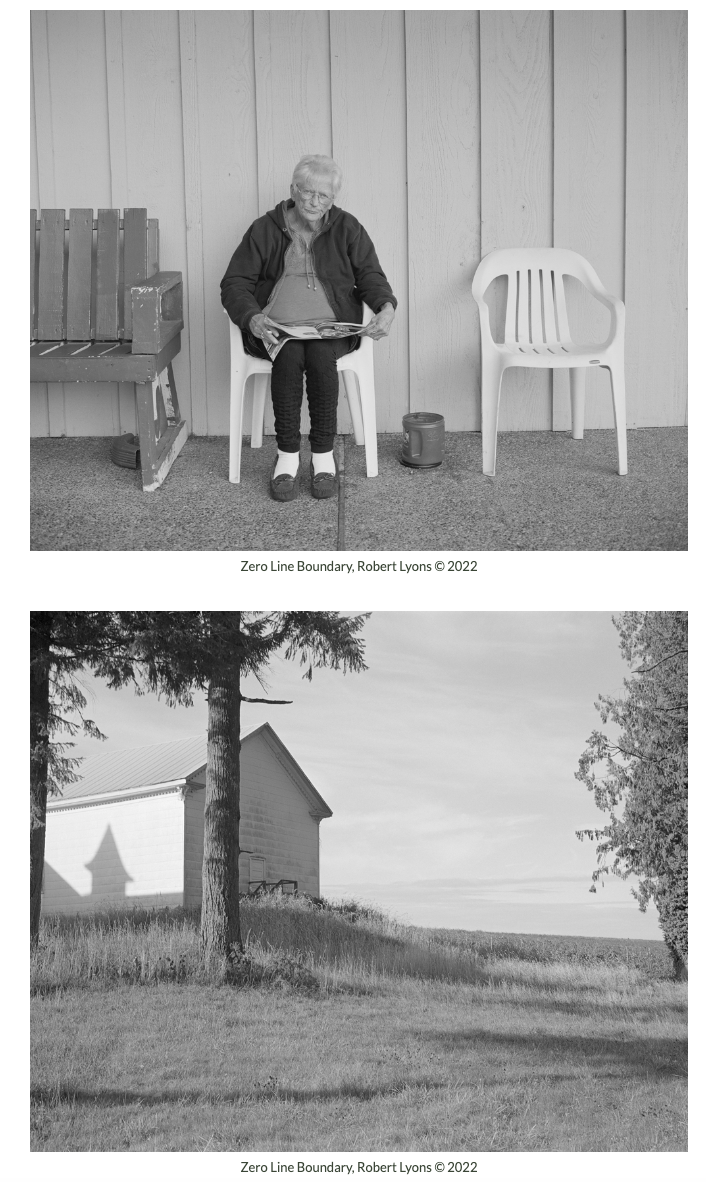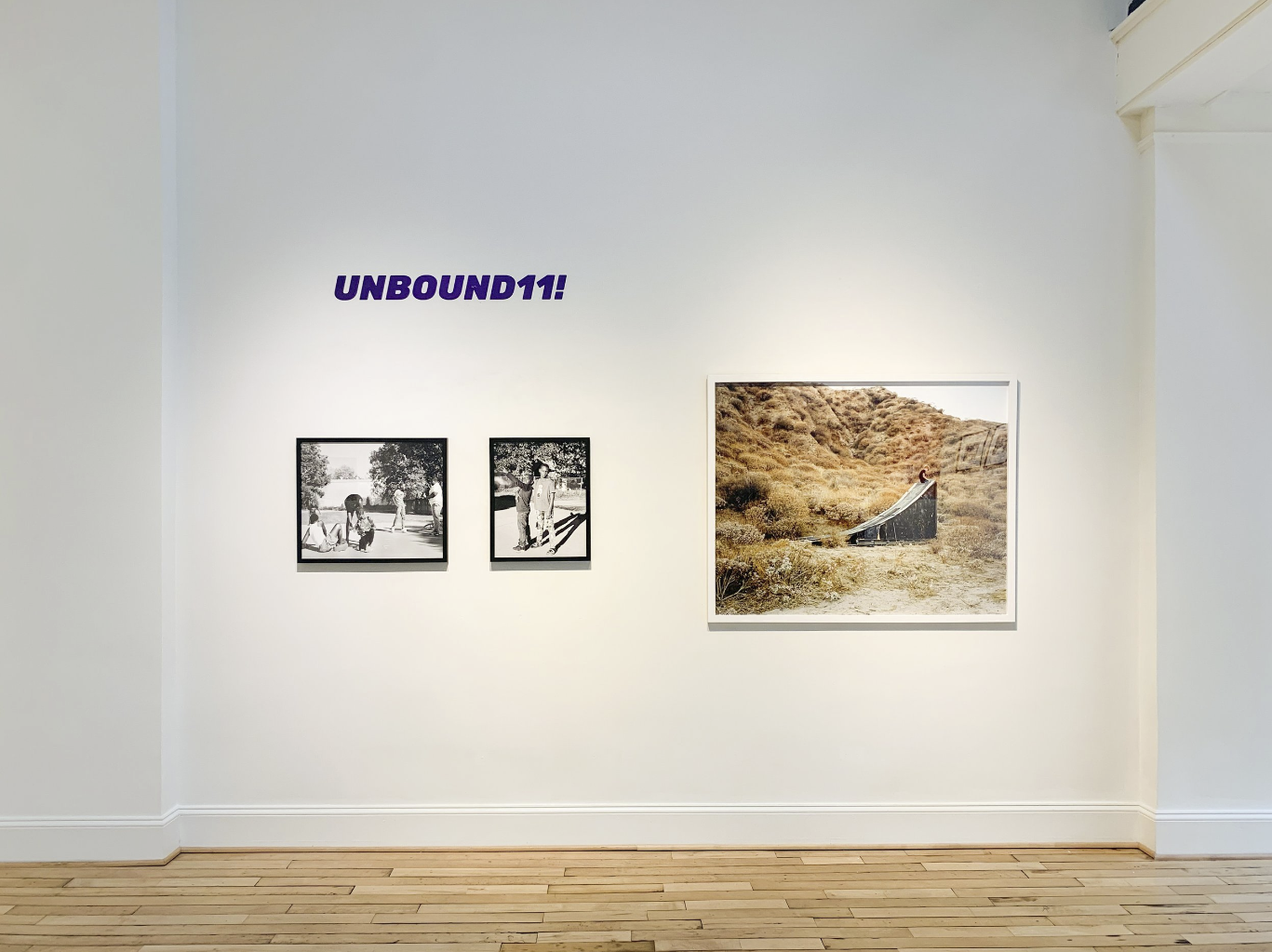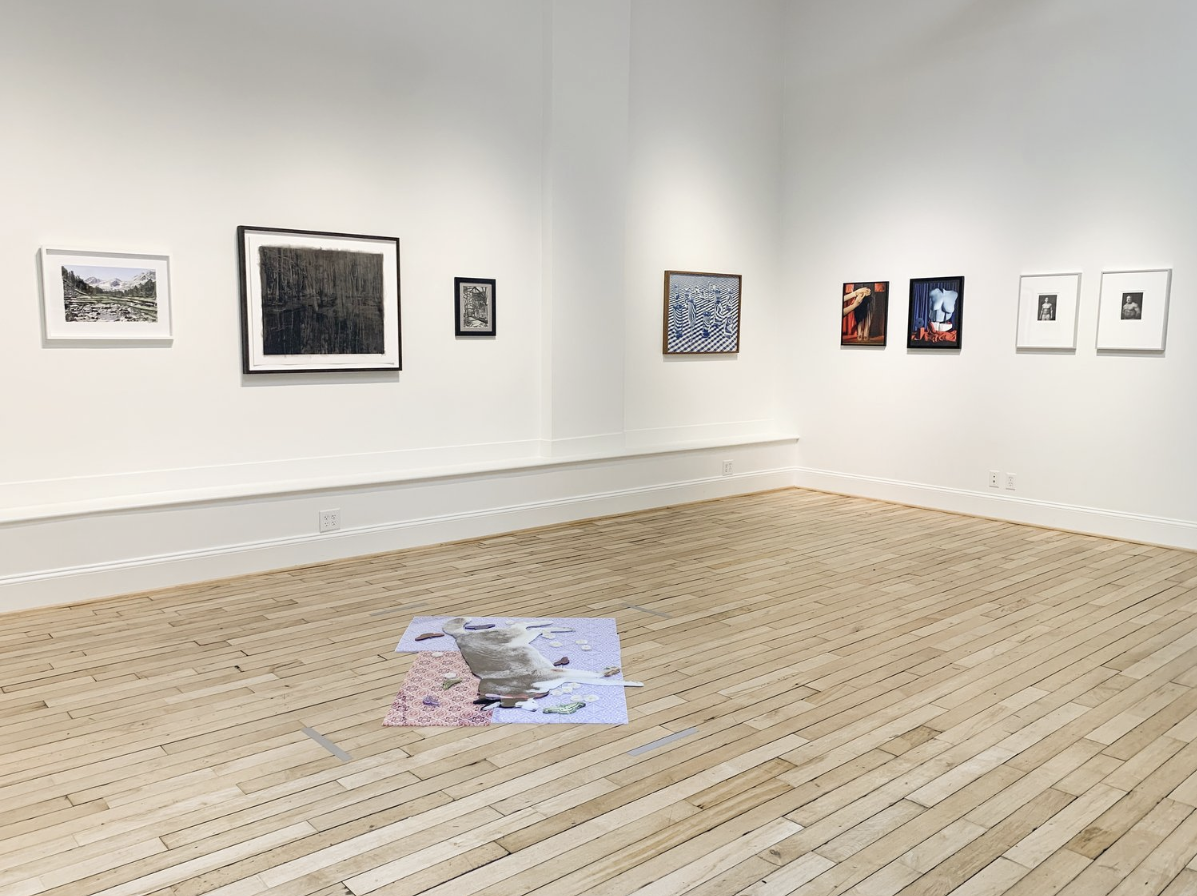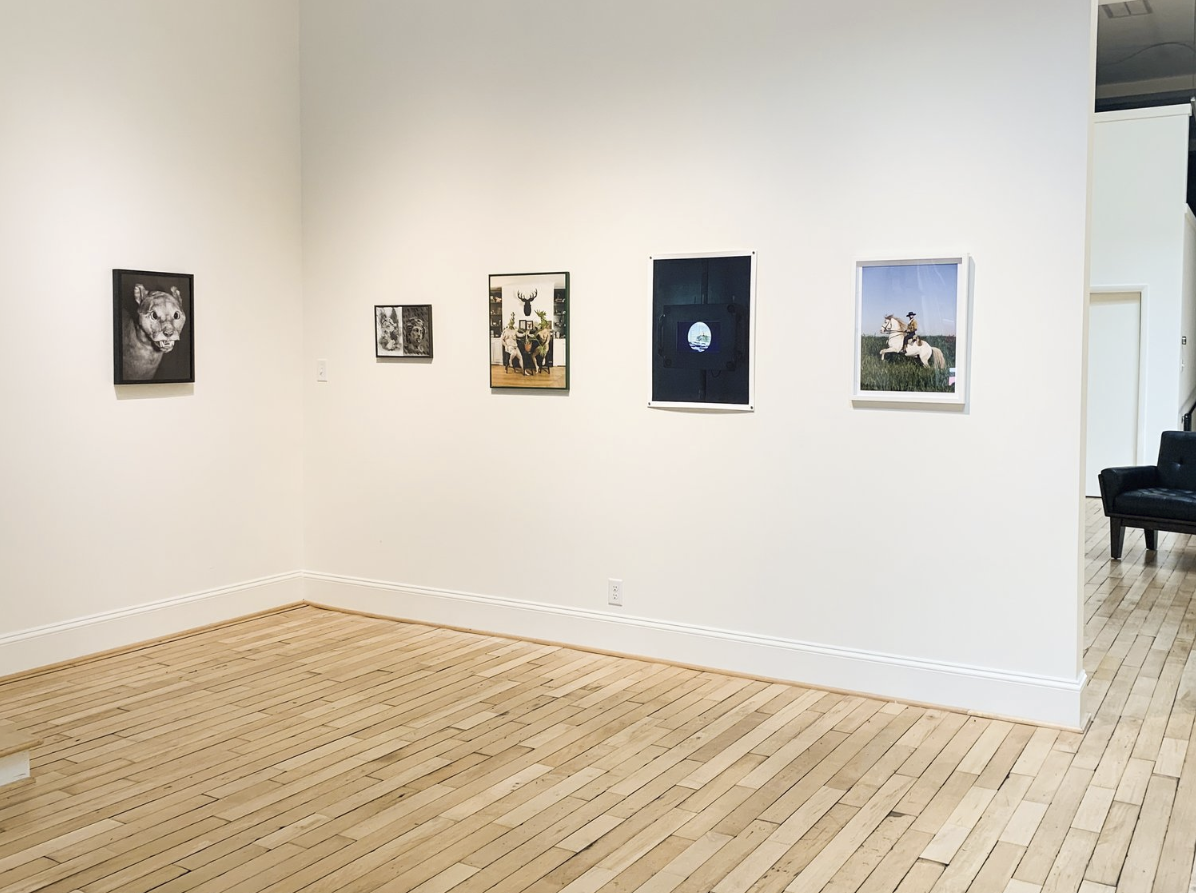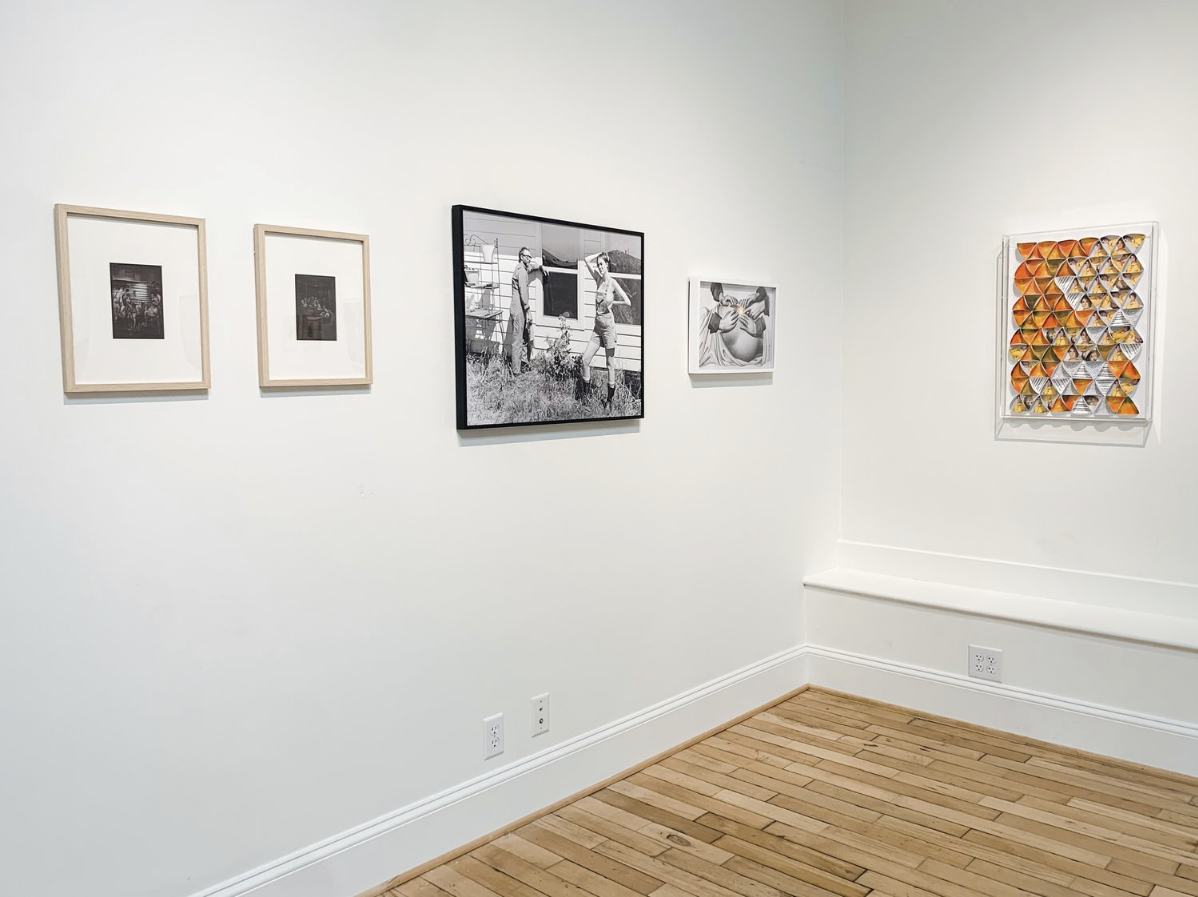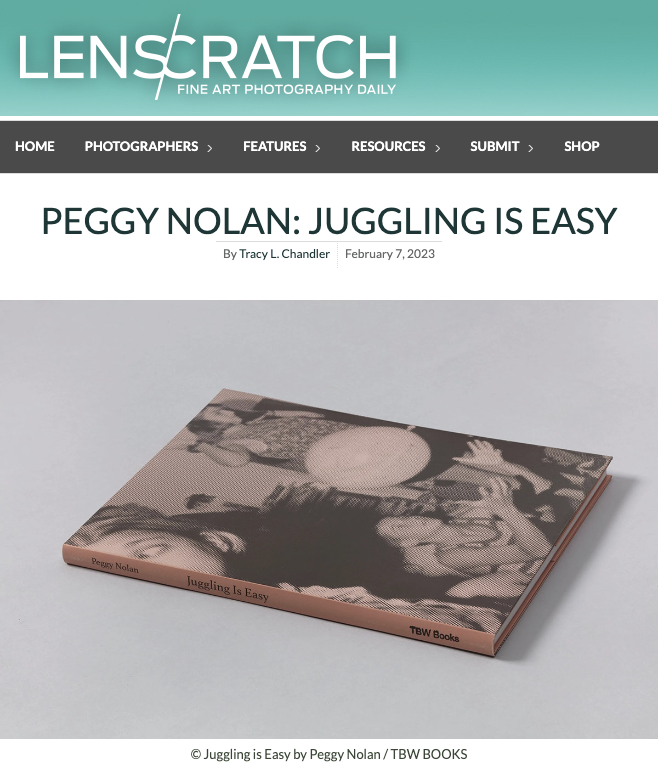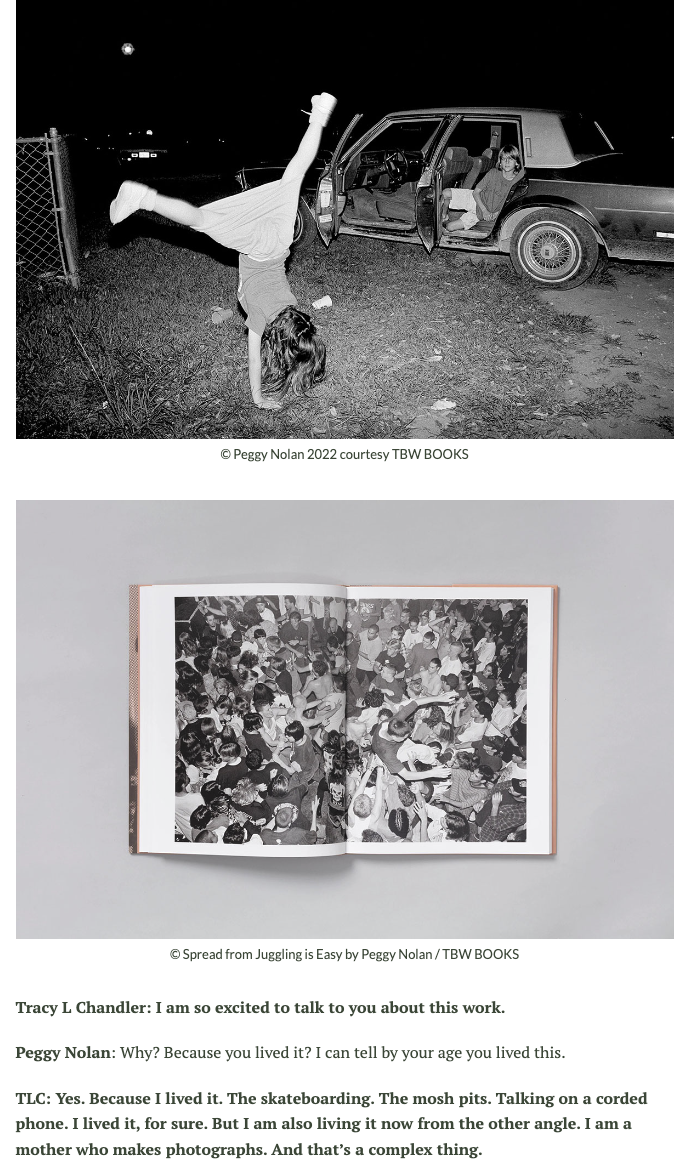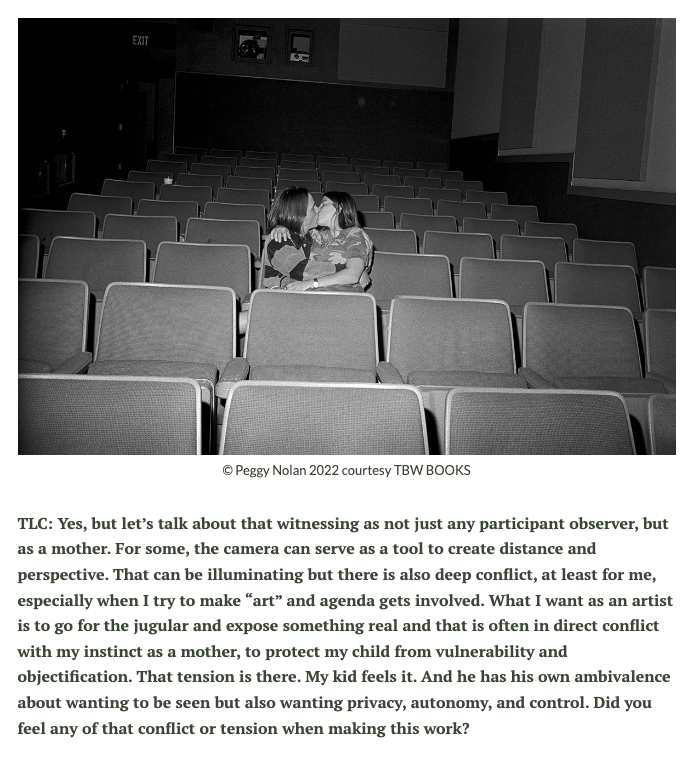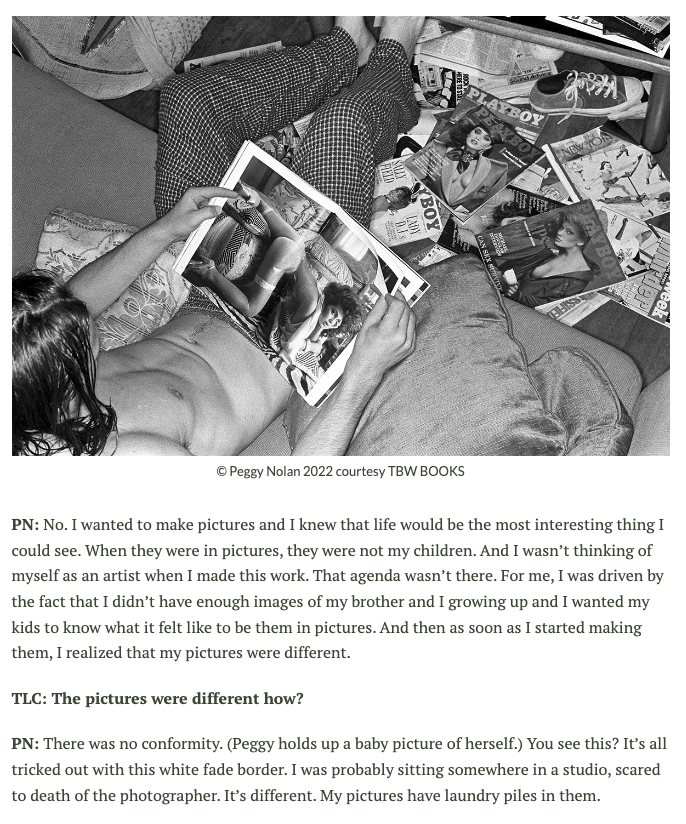I’ve just had the most cozy, productive, and quietly transformative experience as artist in residence at 834 Mibu in Kyoto, Japan.
I spent my days alone; working, walking, and reflecting and I am ever so grateful for this support and the structured time in beautiful Kyoto, a place that now feels like a home away from home.
Thank you, 834 Mibu. 🖤
Check out the recap reel on Instagram
The Californians at Center for Photographic Arts
Introducing The Californians, a new show at the Center for Photographic Art, featuring the works of three Deadbeat Club photographers: Ian Bates, Tracy L Chandler and Janet Delaney.
All three artists feature California as their backdrop, yet the landscapes couldn't be more different - from the rugged Mojave desert, through the streets of 1970s Los Angeles and finally to the smoldering forests of northern California. Woven together by a common thread of memory, these three distinctive and poignant contemporary photographic visions explore the accuracy of memory, the endurance of memory, then our collective memory and what we endeavor to leave for future generations.
The Californians
Ian Bates, Tracy L Chandler, Janet Delaney
January 10 - February 8, 2026
Opening reception
January 10, 4:00 - 6:00pm
Artists talk
January 10, 3:00 - 4:00pm
Carpenter Hall, Sunset Center
Carmel Center for Photographic Art
9th and San Carlos
Carmel-by-the-Sea
834 Mibu Artist Residency
January is a busy month! After The Californians opens in Carmel, I’ll be heading to Kyoto for an artist residency with 834 MIBU.
834 MIBU has been a tremendous supporter of photobooks through their publisher-curated library program, and they’ve recently begun offering housing residencies for photographic artists seeking time and space to create in this vibrant, historic city.
I plan to use my time in wintery Japan to reflect and regroup after an epic 2025, and to edit some of the new work I’ve been making in the desert over the past year. I’m especially excited to experience Kyoto in the winter — a landscape and atmosphere that is completely different from where the work was made — and to see what new perspectives that contrast brings.
Innovate Grant
I am pleased to share that I am the recent recipient of the Innovate Grant. I am so grateful for the recognition and for the financial support of my practice. Check out the interview with yours truly here.
Conversation with Small Photobook Cult Video Podcast →
I had a wonderful conversation with Gabriele Chiapparini for his youtube video podcast Small Photobook Cult. Please check out what they are doing, so many great in-depth conversations with photobook artists with visuals to follow along with!
Artist Talk at Baltimore Photo Space
Super excited to visit Baltimore Photo Space for an artist talk about A POOR SORT OF MEMORY, Saturday August 2nd. I have been a fan from afar of everything they have been doing to build and support a local community of photographers and book lovers. Can’t wait to visit.
Conversation with Nearest Truth Podcast →
I am please to share this fabulous conversation with Brad Feuerhelm of Nearest Truth. If you are into photobooks, you’ll dig this. We get really nerdy. Thank you to @ordinarylight at @nearesttruth for the in depth conversation. We chat about photobooks, writing about photobooks, and my own photobook, A POOR SORT OF MEMORY. Good times!
Have a listen… episode 445 on nearesttruth.com
BOOOOOOOM Array 3 →
Check out Array 3 the latest digtial zine from booooooom (that’s 7 o’s) where I have an interview and feature. The entire publication is available as a free download. So much good stuff in there.
Photobook Talk at Austin CC with @photobookatx →
A POOR SORT OF MEMORY exhibition at Deadbeat Club Headquarters DTLA →
I am very excited to invite everyone to view the exhibition of A POOR SORT OF MEMORY at the Deadbeat Club Headquarters at The Reef in DTLA.
Installed in a now defunct home design studio, the exhibition sits amidst a decrepit space, the perfect context for A POOR SORT OF MEMORY. Leaving the paint patches, spackle holes, and detritus all in-place, the photographs were installed in the abandoned space as a reflection and integration of the themes of degradation of memory and home, and the transitory nature of the self as we come of age. As an accompaniment to the photobook, this exhibition expands the work into an embodied experience.
In addition to the framed images, there is also a sound installation. Made in collaboration with Eli Stringer, vintage phones retrofitted with narrative and ambient sound are installed throughout the space, bring a sensory experience of the outside world in to the gallery.
The show is currently on view. Make your viewing appointment here or come celebrate with us on Saturday February 15th 5-8pm. 1933 S Broadway, Los Angeles, CA 90007
A Poor Sort of Memory : Photobook Now Shipping →
A POOR SORT OF MEMORY has arrived! Published by Deadbeat Club, the book is the result of my deeply personal journey making photographs around my hometown in the California desert and contends with the limitations of memory and the perils of coming of age. I am very proud of this book and very grateful to Deadbeat Club for the superb collaboration. The object is beautifully printed and bound in a linen hardcover with iridescent foil stamping. Also available, is a limited special edition with a tipped-in image on the cover accompanied by a signed print in a vellum folio. All of this is enclosed in a hardbound slipcase. It’s very nice.
Books are shipping now! Yay! Get yours here.
A Poor Sort of Memory : Lenscratch Feature →
I am thrilled to have A Poor Sort of Memory featured on Lenscratch and to share a deep discussion on the making of the book and my personal history as the context and impetus for this photographic journey. I am grateful for the brilliant Sarah J Winston for the thoughtful conversation. Read the entire interview here.
“A Poor Sort of Memory transports us to the Coachella Valley of California. Throughout the book’s pages I feel an uneasiness, an ominous force, one that I cannot shake nor easily discern. The pictures feel timeless, all I can trace is the heat of the California sun. This book requests one’s contemplation, and in doing so, puts the reader right there in the landscape with the photographer. The book asks that the viewer sit closely, in companionable silence with its narrator, to go in and out of various vortexes in order to find stasis. Buckle in.” - Sarah J Winston
"It initially started with a personal journey of self inquiry in an effort to preserve my past, but the camera revealed the limited subjectivity of both memory and photography. As I revisited sites of specific memory, things would not be quite as I remembered, small details were amiss, and the camera framed more out than in. This left a gap of confusion and doubt that, although initially frustrating, opened things up for possibility. Seeing the futility in the effort of preservation I was free to follow where the work wanted to go." - TLC
“In Lewis Carrol's Through the Looking Glass, the white queen says to Alice "It's a poor sport of memory that only works backwards." It's nonsensical, yet profound. It challenges the notion that memory is fixed and only in the past. It posits that memory may work in multiple directions. We are creating memories now and planting them into the future. It's disorienting, for sure.” - TLC
“Maybe I was afraid that if I forgot my story, I would be more apt to repeat it. The irony is, the harder I tried to do this, the more elusive and flawed the memories seemed. That's when things moved beyond the personal and got interesting to me as an artist.” - TLC
“That context of your life makes me look at the portals a little differently now. Some begin to feel like oracles and spiritual passages, allowing the bending of time even more; looking back and in, changing the past through engagement with it all. It’s all pretty incredible. Thank you for sharing.” - Sarah J Winston
Montello Foundation : Residency Recap
I recently completed an artist residency for the wonderful Montello Foundation. It's a solitary retreat, totally off-grid in the desert highlands of rural Nevada. For 10 days I occupied a lovely little house with an artist's studio situated on thousands of acres of open sagebrush. I was free to roam and make work as i wished. it was awesome. And since i had zero internet, no cell reception, zilch contact to the outside world, I couldn't post about til now. So here comes a little photo dump...move on if you hate nature, especially rainbows.
A Poor Sort of Memory : Photobook Available for Pre-Order →
My debut monograph A Poor Sort of Memory, published by Deadbeat Club is currently available for pre-order. Reserve your copy now, we plan to ship early fall 2024. Also sign up for my newsletter and follow me on instagram for updates on delivery, launch events, and book signings. So excited for this!
A Poor Sort of Memory : Short Film at Arles →
A short film version of A POOR SORT OF MEMORY is showing at Le Recontres De La Photographie in Arles this summer. The film debuts at the “Night of the Year” celebration and then will be screening every night of the summer as part of the “Best Of the Festival”. You can also view it online here.
Solo show at Gallery 169 in Santa Monica →
TRACY L CHANDLER : THE EDGE OF I brings together two bodies of work contending with the transience of selfhood, A POOR SORT OF MEMORY and WEIGHT OF INFINITE POSSIBILITIES. The solo show will include archival pigment prints from both bodies of work as well as screen a short film of A POOR SORT OF MEMORY that was commissioned by Le Recontres De La Photographie in Arles. The show opens at Gallery 169 on Saturday June 10th and will run through the summer.
Lenscratch Conversation : Robert Lyons →
As part of my ongoing series of conversations with photobook artists, I recently sat down with Robert Lyons to discuss his latest monograph, Zero Line Boundary with Zatara Press.
Zero Line Boundary focuses on the dividing line between Canada and the United States. This Northern Border, which is the world’s longest continuous border, is often overlooked in American culture and media, at least when compared to the highly politicized and walled border to our south. Photographing along this quiet, open, and seemingly undefended boundary, Robert Lyons uses black-and-white photographs of the area and its inhabitants to explore themes of nationhood, territory, and surveillance. Weaving together portrait and landscape photographs with thoughtful design, Zero Line Boundary assembles a quiet but complex sequence of metaphor and direct observation. Beyond his photography practice, Robert Lyons also serves as an educator and is the founding director of the Hartford Art School’s Photography MFA program. In full disclosure, he was my grad school advisor and it was nice to talk with him about his work for a change.
Hopper Prize Journal Interview →
After being awarded finalist for the Hopper Prize, I was interviewed for their journal in which i discuss motivations for making work as well as upcoming projects. View the full feature at this link.
Unbound 11 at Candela Gallery →
So pleased to be included in the Unbound 11 show at Candela Gallery. I love the mission of this gallery and their dedication to growing and donating the Candela Collection. My piece “Eli on Ramp” was collected by the Virginia Museum of FIne Arts.
Lenscratch Conversation : Peggy Nolan →
As part of my ongoing series of conversations with photobook artists, I recently sat down with Peggy Nolan to discuss her latest monograph, Juggling is Easy with TBW Books.
“Between 1967 and 1982, I gave birth to seven children. All are still alive and not a single tattoo.” And so starts off Peggy Nolan’s latest monograph, Juggling is Easy, published by TBW Books. The first image is of a teenage girl, safety pin piercing her nostril. She challenges the camera with a cold stare, a look that mothers everywhere will recognize. But many more images follow that would normally prove elusive for the parental gaze,… make-out sessions, stolen cigarettes, bridge jumping, and mosh pits. Many of us have lived these moments, but not with our mother and her Leica in tow. With this work, Peggy Nolan has afforded us access to her specific familial drama with all its universally recognizable rights of passage. What results is not your normal heirloom scrapbook but a photobook with a searingly intimate look at a complex family and a grounded revelation of the chaos of coming of age.
